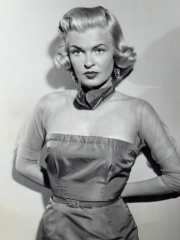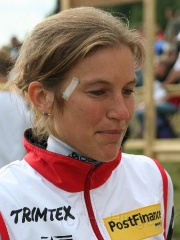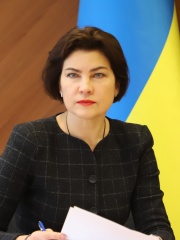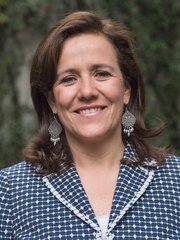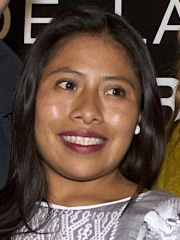ACTOR
Karyme Lozano
1978 - Today
 Karyme Lozano
Karyme Lozano
Karyme Lozano (Spanish pronunciation: [kaˈɾime loˈsano]; born Karyme Lucía Virginia Lozano Carreno on April 3, 1978) is a Mexican actress. She has appeared on three covers of Los 50 Mas Bellos of People en Español. She has been nominated and won several awards for Best Actress including for Premios TVyNovelas and Las Palmas de Oro. Read more on Wikipedia
Her biography is available in 19 different languages on Wikipedia (up from 15 in 2024). Karyme Lozano is the 11,474th most popular actor (down from 11,060th in 2024), the 591st most popular biography from Mexico (down from 580th in 2019) and the 131st most popular Mexican Actor.
Memorability Metrics
Page views of Karyme Lozano by language
Among ACTORS
Among actors, Karyme Lozano ranks 11,474 out of 13,578. Before her are Patrick Breen, Lee Joo-yeon, Max Brooks, Josh Henderson, Peggy Knudsen, and Joe Cheng. After her are Peter O'Brien, Ken Dodd, María Gabriela de Faría, Leticia Dolera, Kip Pardue, and Clayne Crawford.
Most Popular Actors in Wikipedia
Go to all RankingsPatrick Breen
1960 - Present
HPI: 44.19
Rank: 11,471
Lee Joo-yeon
1987 - Present
HPI: 44.18
Rank: 11,472
Max Brooks
1972 - Present
HPI: 44.18
Rank: 11,473
Josh Henderson
1981 - Present
HPI: 44.18
Rank: 11,474
Peggy Knudsen
1923 - 1980
HPI: 44.18
Rank: 11,475
Joe Cheng
1982 - Present
HPI: 44.18
Rank: 11,476
Karyme Lozano
1978 - Present
HPI: 44.18
Rank: 11,477
Peter O'Brien
1960 - Present
HPI: 44.17
Rank: 11,478
Ken Dodd
1927 - 2018
HPI: 44.17
Rank: 11,479
María Gabriela de Faría
1992 - Present
HPI: 44.17
Rank: 11,480
Leticia Dolera
1981 - Present
HPI: 44.17
Rank: 11,481
Kip Pardue
1975 - Present
HPI: 44.17
Rank: 11,482
Clayne Crawford
1978 - Present
HPI: 44.17
Rank: 11,483
Contemporaries
Among people born in 1978, Karyme Lozano ranks 724. Before her are Monika Soćko, Pablo Guiñazú, Billy Eichner, Dmitri Dyuzhev, Qasim al-Raymi, and Leonardo Bertagnolli. After her are Clayne Crawford, Conny Pohlers, Hideaki Kitajima, Simone Niggli-Luder, Charles Kamathi, and Iryna Venediktova.
Others Born in 1978
Go to all RankingsMonika Soćko
CHESS PLAYER
1978 - Present
HPI: 44.22
Rank: 718
Pablo Guiñazú
SOCCER PLAYER
1978 - Present
HPI: 44.22
Rank: 719
Billy Eichner
ACTOR
1978 - Present
HPI: 44.21
Rank: 720
Dmitri Dyuzhev
ACTOR
1978 - Present
HPI: 44.20
Rank: 721
Qasim al-Raymi
EXTREMIST
1978 - 2020
HPI: 44.19
Rank: 722
Leonardo Bertagnolli
CYCLIST
1978 - Present
HPI: 44.19
Rank: 723
Karyme Lozano
ACTOR
1978 - Present
HPI: 44.18
Rank: 724
Clayne Crawford
ACTOR
1978 - Present
HPI: 44.17
Rank: 725
Conny Pohlers
SOCCER PLAYER
1978 - Present
HPI: 44.14
Rank: 726
Hideaki Kitajima
SOCCER PLAYER
1978 - Present
HPI: 44.13
Rank: 727
Simone Niggli-Luder
ATHLETE
1978 - Present
HPI: 44.13
Rank: 728
Charles Kamathi
ATHLETE
1978 - Present
HPI: 44.13
Rank: 729
Iryna Venediktova
POLITICIAN
1978 - Present
HPI: 44.08
Rank: 730
In Mexico
Among people born in Mexico, Karyme Lozano ranks 591 out of 729. Before her are Margarita Zavala (1967), Carla Morrison (1986), Raúl Gutiérrez (1966), Eugenio Siller (1981), Chuy Bravo (1956), and Patricia Manterola (1972). After her are Francisco Javier Rodríguez (1981), César Arturo Ramos (1983), Hugo Ayala (1987), Marco Fabián (1989), José Luis Salgado (1966), and Bernardo Segura (1970).
Others born in Mexico
Go to all RankingsMargarita Zavala
POLITICIAN
1967 - Present
HPI: 44.39
Rank: 585
Carla Morrison
MUSICIAN
1986 - Present
HPI: 44.35
Rank: 586
Raúl Gutiérrez
COACH
1966 - Present
HPI: 44.32
Rank: 587
Eugenio Siller
ACTOR
1981 - Present
HPI: 44.29
Rank: 588
Chuy Bravo
ACTOR
1956 - 2019
HPI: 44.28
Rank: 589
Patricia Manterola
SINGER
1972 - Present
HPI: 44.19
Rank: 590
Karyme Lozano
ACTOR
1978 - Present
HPI: 44.18
Rank: 591
Francisco Javier Rodríguez
SOCCER PLAYER
1981 - Present
HPI: 44.16
Rank: 592
César Arturo Ramos
REFEREE
1983 - Present
HPI: 44.15
Rank: 593
Hugo Ayala
SOCCER PLAYER
1987 - Present
HPI: 44.15
Rank: 594
Marco Fabián
SOCCER PLAYER
1989 - Present
HPI: 44.10
Rank: 595
José Luis Salgado
SOCCER PLAYER
1966 - Present
HPI: 44.09
Rank: 596
Bernardo Segura
ATHLETE
1970 - Present
HPI: 44.04
Rank: 597
Among ACTORS In Mexico
Among actors born in Mexico, Karyme Lozano ranks 131. Before her are Christian Chávez (1983), Adriana Paz (1980), Arcelia Ramírez (1967), Paty Navidad (1973), Eugenio Siller (1981), and Chuy Bravo (1956). After her are Irán Castillo (1977), Yalitza Aparicio (1993), Camila Sodi (1986), Paulina Gaitán (1991), Sara Maldonado (1980), and Fernanda Castillo (1982).
Christian Chávez
1983 - Present
HPI: 45.83
Rank: 125
Adriana Paz
1980 - Present
HPI: 45.78
Rank: 126
Arcelia Ramírez
1967 - Present
HPI: 45.66
Rank: 127
Paty Navidad
1973 - Present
HPI: 44.94
Rank: 128
Eugenio Siller
1981 - Present
HPI: 44.29
Rank: 129
Chuy Bravo
1956 - 2019
HPI: 44.28
Rank: 130
Karyme Lozano
1978 - Present
HPI: 44.18
Rank: 131
Irán Castillo
1977 - Present
HPI: 44.02
Rank: 132
Yalitza Aparicio
1993 - Present
HPI: 43.99
Rank: 133
Camila Sodi
1986 - Present
HPI: 43.73
Rank: 134
Paulina Gaitán
1991 - Present
HPI: 43.69
Rank: 135
Sara Maldonado
1980 - Present
HPI: 43.58
Rank: 136
Fernanda Castillo
1982 - Present
HPI: 43.46
Rank: 137





